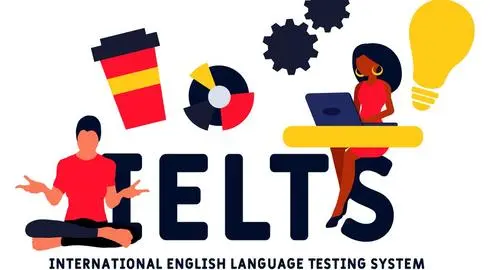How to improve your IELTS Score?
 Brian Winter
Brian Winter
If you aim to reside or work in Canada, your score in IELTS can have a major impact on the careers or Canadian Visas available to you. You will be evaluated for 4 language competencies in the English language in the IELTS – Reading, Writing, Speaking, and Listening. Further, the IELTS requirement for Canada Work Permit can vary according to the NOC code and immigration pathway chosen for application.
The earlier you begin preparing for IELTS, the better.
Irrespective of your stage in the IELTS test process whether you have just begun thinking about taking the test or have already booked your slot, we have here compiled the examiner-approved best tips to help you score the maximum possible band score:
IELTS Writing
The writing module involves 2 tasks and both must be completed within 60 minutes.
Tips to Improve Your Writing Module Score
Carefully read the questions. Your success depends on how well you understand the questions before you begin to write. Write in paragraph format and convey one idea in each paragraph. Ensure to divide multiple ideas into diverse paragraphs.
Make maximum use of your vocabulary and avoid over-repetition in words. This is a chance for you to display your English skills. Use alternative words in case of words with identical meanings.
IELTS Reading
The reading module has a duration of sixty minutes. You will have to answer 40 queries according to the source material offered.
Tips to Improve Your Score in the Reading Module
Practice reading every day and try to read English texts for 30 minutes per day. If you are not fond of reading, then initially choose your interested topics. You can later cover the other topics in the materials.
Ensure variety in your reading material to make you familiar with diverse texts. This will prepare you to manage any kind of questions in IELTS. If you are focusing on magazines, try to read some newspapers or novels too.
Practice strategies in reading. You may have to read a large volume of text in the reading module. Strategies like ‘skimming’ or ‘scanning’ can help you when you are short of time to read the entire text provided.
IELTS Listening
The Listening module has 40 queries and you have 30 minutes to answer. You will have to listen to 4 recordings spoken in English and answer 10 queries per recording.
Tips to Improve Your Score in the Listening Module
Enhance your skills in active listening. This can be achieved by listening to media that features native English speakers like TV shows and movies, podcasts, or audiobooks. The latter are perfect to practice your skills in listening anywhere.
Practice tests can enhance your confidence and comfort level with the formats of questions before taking up a live IELTS test.
Make a note of keywords. You can view the questions for every recording even before hearing them. Identify the important keywords and listen to them or identical words in the recording.
IELTS Speaking
The speaking module in the IELTS test is the shortest of all the 4 modules requiring only 14 minutes overall. The module has 3 parts and roughly 3 to 5 minutes are required for each of them.
Tips to Improve Your Score in the Speaking Module
Practice makes you perfect and this is so true for the speaking module. Utilize all opportunities to practice English speaking before the live test. Communicate with your friends in the English language. You can also try to converse with a native English speaker if you get the chance.
You must speak clearly. You may speak swiftly if you are nervous and this can result in errors. Focus on pronouncing clearly by slowing down your speech.
Refrain from easy ‘no’ or ‘yes’ answers as this is your chance to display your conversation skills and vocabulary. Try to share any personal opinions or experiences with the examiner suitable to the topic of discussion.
You can change the approach to the topic but are not allowed to change the topic itself if in case you are not acquainted with the topic under discussion.
For example, you may be asked to describe your car and you do not have any. You can then answer in this manner:
“Presently I do not have a car at but wish to own one in the subsequent decade. I have not yet purchased a car as cars are costly and I like to travel by public transportation like a train”.
In this way, you can speak for 2 minutes regarding reasons for not owning a car, the cons, and the pros of public transportation.
If you wish to evaluate your profile for immigration to Canada or check PR eligibility for Canada, contact CICC-accredited Immigration Experts at the Best Immigration Consultants in Mumbai Nationwide Visas.
Subscribe to my newsletter
Read articles from Brian Winter directly inside your inbox. Subscribe to the newsletter, and don't miss out.
Written by
